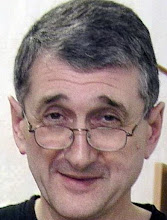Couple weeks ago, Russian IT and Internet community was very (positively) excited by a new Russian Minister of Communications and Mass Media of the Russian Federation.
Nikolai Nikiforov is only 30, until recently whole career of this graduate from Kazan university was within Internet. Nikolay is known by a successful implementation of the 4G LTE in Tatarstan region and by practical progress of the installment of electronic government solutions in the region.
Today, the Russian daily VEDOMOSTY announced that Mr Nikiforov rejected an earlier existing project of implementation of the Russian national OS (probably based on Lunix). The new minister strongly believes that a much more pragmatic approach is to make a special strategic deal with Microsoft assuming special prices, application of cloud technologies for governmental services, and other. The negotiations with Microsoft has already begun. According to VEDOMOSTY, Nikiforov's decision resulted in a conflict in his ministry and resignations of some people who believe that Russia is capable (due to qualification of its specialists) and obliged (due to the national security reasons) to develop its own OS and basic platform.
My personal opinion is that yes, it's true that Russia is potentially capable and probably obliged to implement its own platform but it does not mean that such a project can actually be efficiently organized, financed, managed, industrially implemented, installed, reliably maintained, and so on. Which means that, maybe unfortunately, Microsoft provides more efficiency and national security for Russia...
About Mr Nikiforov (English)
Source from VEDOMOSTY (Russian)



